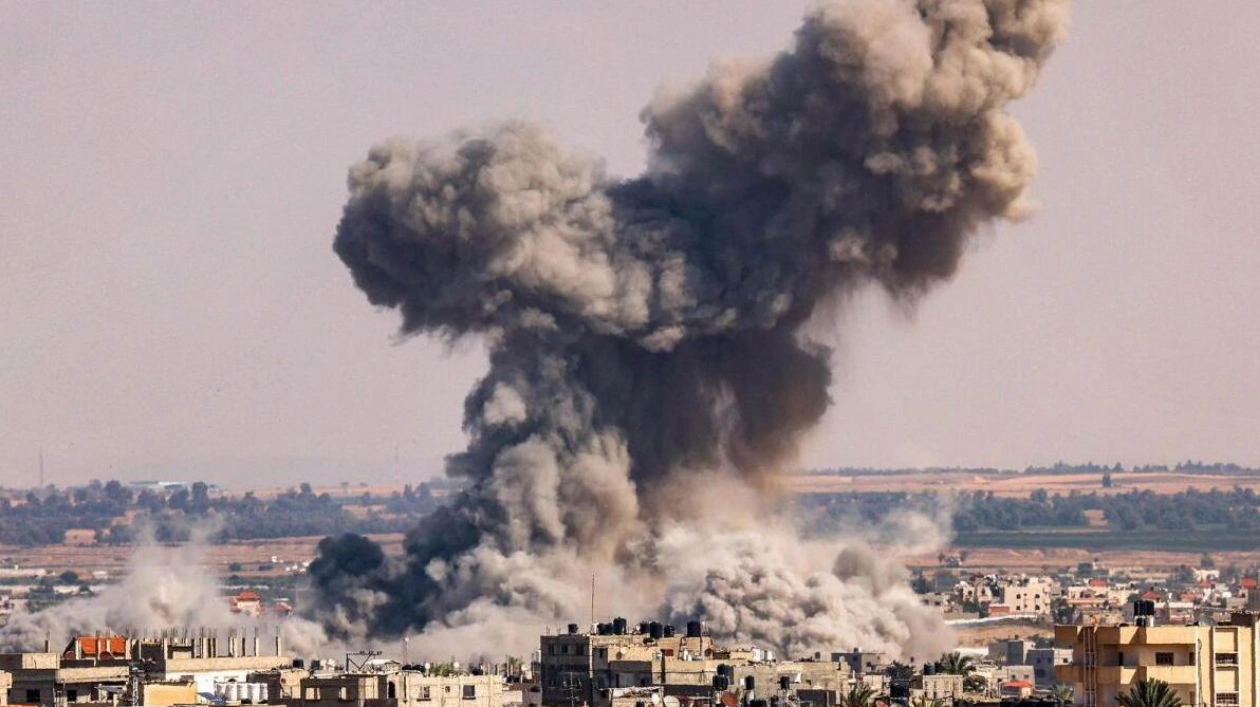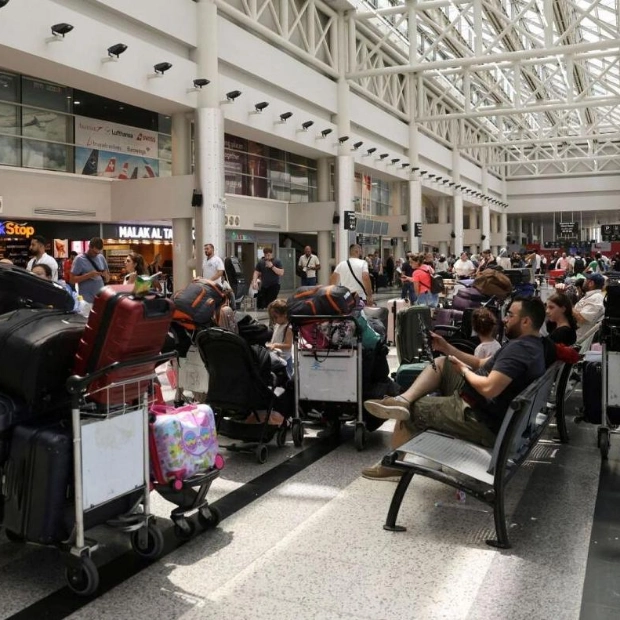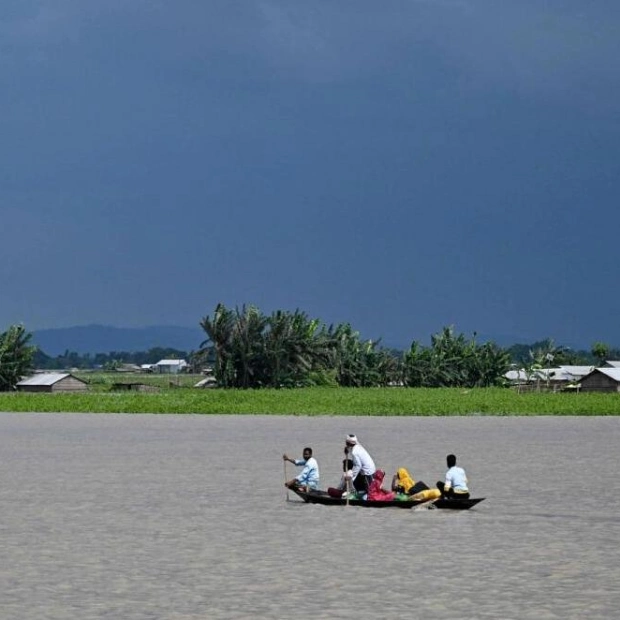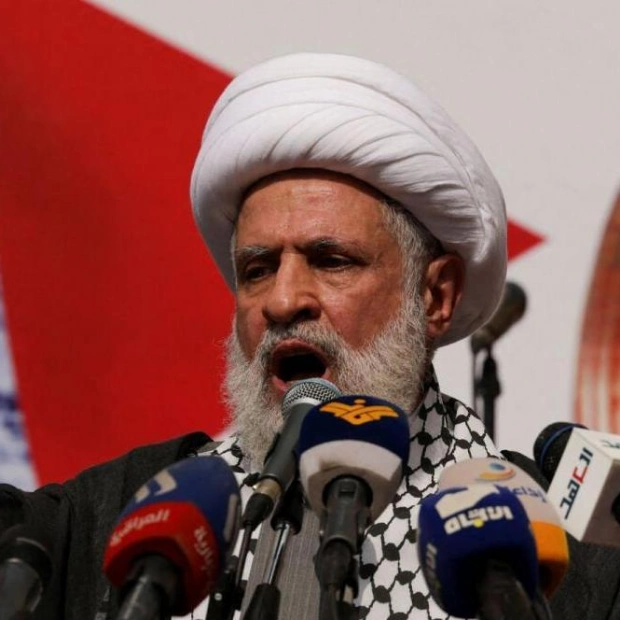Near Palestinian landowner Olayan Olayan's olive groves on a hillside, Israeli settlers are establishing a new, illegal outpost within a UNESCO-protected zone. Olayan and his neighbors have long fought against attempts to settle the land in Battir, a heritage site in the Israeli-occupied West Bank known for its ancient stone terraces.
Construction in the West Bank by Israelis has surged since the conflict began in the Gaza Strip, despite all settlements in the area being deemed illegal under international law. The new outpost on a Battir hilltop received an eviction notice, which Olayan's cousin Ghassan Olayan claims has not been enforced due to the Gaza war. The outpost now features a flagpole, living quarters, and a barn for sheep that graze on a rocky hill covered with olive trees belonging to Palestinian farmers.
"I cultivated the land and planted it until it yielded fruit trees," said Olayan, who at 83 is older than the state of Israel. "Some trees were 50 years old, or even more, and suddenly the settlers arrived and wanted to seize the land from us," he added, his voice trembling. More concerning to the Olayans is the planned settlement of Heletz, adjacent to the outpost.
Yonatan Mizrahi of Peace Now, a settlement watchdog, stated that Heletz was one of five settlements "deep in Palestinian territory" approved by the Israeli government on June 27. "It is a settlement that is going to block Battir and in many ways create tension between the neighbors," he said. Both Heletz and the outpost are located within the UNESCO protection zone for Battir, one of four listed heritage sites in the West Bank.
The UNESCO classification allows the village to receive technical, legal, and monetary assistance to preserve sites at risk. In Battir, children play in the Roman-era fountain that irrigates the terraces where tomatoes, corn, aubergines, and olive trees grow. The 2,000-year-old dry stone walls supporting the landscape earned the village its cultural inscription in 2014. However, this classification has done little to prevent the seizure of surrounding farmland.
Battir's inhabitants have successfully challenged at least three previous Israeli settlement outpost attempts in court. But Ghassan Olayan worries that the war following Hamas's attacks on October 7 on Israel will make the new, government-approved Heletz more likely to become a reality. According to Olayan, Heletz is intended to link Jerusalem to Gush Etzion, a cluster of settlements deeper in the West Bank.
If this is achieved, Battir and the nearby Palestinian villages would be cut off from Bethlehem and the rest of the West Bank, a process they fear will fragment a future Palestinian state. "There will be no (territorial) continuity," said Olayan, leading to what some observers describe as an archipelago of Palestinian sovereignty. Israel's far-right Finance Minister Bezalel Smotrich, a settler himself, openly declares that preventing Palestinian statehood is the objective.
"We will continue to develop the settlements in order to maintain Israel's security and prevent the establishment of a Palestinian state," he wrote on the X social media platform after the five latest settlements were approved in June. In recent months, Israeli forces have blocked a road to Battir, nearly doubling the time it takes to reach Jerusalem, just 10 kilometers (six miles) north. When asked about the new outpost in Battir, an Israeli security official acknowledged that "an Israeli farm had been established without proper authorization."
The official told AFP "the possibility of authorizing the farm will be weighed" as the development of Heletz proceeds. Battir residents "raised several claims that the land belongs to them" but have "not presented documentation to support their position," according to the official. Olayan claims documents from Ottoman times prove Battir inhabitants' ownership of the land. A UNESCO spokesperson stated that the UN cultural agency's world heritage committee had been informed about "reports of illegal constructions" and that Battir would be discussed at a session in late July.
Olayan fears that peaceful Battir, with its collective life centered around the Roman fountain's irrigation system, which allocates each family a specific time slot to irrigate their crops, faces a challenging future. "Battir is a peaceful village and the settlement will only bring trouble," he said.






